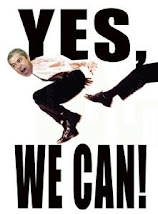
Subscrever:
Enviar feedback (Atom)
"Todo indivíduo tem direito à liberdade de opinião e de expressão, o que implica o direito de não ser inquietado pelas suas opiniões e o de procurar, receber e difundir, sem consideração de fronteiras, informações e idéias por qualquer meio de expressão."


Uma utopia é uma possibilidade que pode efectivar-se no momento em que forem removidas as circunstâncias provisórias que obstam à sua realização. (Robert Musil)






































Não ao novo Tratado europeu!
Revogação de todos os tratados!
Revogação do Tratado de Maastricht-Amesterdão,
Defesa e reconquista dos direitos e garantias
contidos nas legislações de cada um dos nossos países!











8 comentários:
Será que não está na hora de voltarmos a usar este simbolo? Penso que sim. Eu tinha um, onde é que o terei guardado. Vou procurar.
bjs
Se calhar perdeste o símbolo quando se deu Chernobyl? Aconselho-vos a leitura do livro "Revenge of Gaia" de James Lovelock. O senhor em causa é um cientista de renome e não um jornalista qualquer à procura de notícias para o 24 Horas.
Kaos: Não importa se não o encontrares, também não sei do meu. Importa mais que o relembres sempre e que ganhe agora uma força renovada!
Outer Space Shit: Obrigada pela visita e pela referência bibliográfica. Vamos a ver o que diz esse cientista de renome. Espero que não seja um dos cientistas da Casa Bronca, digo, da Casa Branca!
Monday, January 16, 2006
Gaia, revenge and trust
In an article in today's Independent, James Lovelock says that it is too late to stop catastrophic changes to the global climate. The average temperature will rise by 8 degrees C in temperate regions and 5 degrees in the tropics. Billions of humans of beings will die as a result, he says.
Nevertheless, he says , it is not too late to take meaningful action (however unlikely that action may be): "I cannot see the US or the emerging economies of China and India cutting back in time [emphasis added], and they are the main source of emissions".
Is Lovelock suggesting that action to limit emissions could still limit temperature rises to significantly less than 5 to 8 degrees, or that without action to limit emissions now the rise will be even greater? What is the basis for his conclusion?
When I interviewed Lovelock at length in late 1999 for an article that appeared the following year in edition 21 of Green Futures, his predictions were no less dire than in today's article and in his new book (to be published in Feb 2006).
His thinking has not changed much, then. What has changed is that the science has progressed and has largely confirmed the most pessimistic scenarios of the late 90s. Also, the political situation looks to have deteriorated substantially.
My 1999 article concluded:
Much of what Lovelock has to say is decidedly grim. But there is a positive side to Gaia that he is particularly keen to emphasise. Of at least equal importance to [Gaia theory's] usefulness to science, he thinks, is the [moral] guidance it can offer.
"This has been occupying my attention probably more than anything else. People do need something to revere or worship, and religion is beginning to fade all over the world because it's failing to deliver in two fields. One: it used to be the source of information about life, the cosmos and everything - in other words it did science's job for it. And science now does that job so superbly well that religion has become almost redundant in that sphere. Two: it used to give moral guidance. And it's beginning to fail in that too...And so what do we do instead? Science offers nothing, or hasn't done so far, where moral guidance is concerned".
"But now it just happens, quite by accident and not by any conscious thought on my part or anybody else's, that Gaia does offer moral guidance. It does so because its rules are simple: any species that improves its environment favours the welfare of its progeny, whereas any species that adversely affects the environment dooms it for its progeny. And this is very moral. It gives us something to which we are accountable - the Earth itself".
Gaia, Lovelock stresses, is not and should never be the basis of a religion, because religions have faith. "The word I prefer to faith is trust. If we put trust in Gaia then it gives us something that will fulfil the same kinds of needs as religions have." And the problem is that industrial civilisation in its present form is profoundly betraying that trust.
"I'm a grandfather with eight grandchildren" [says Lovelock]. "I need to be optimistic. I see the world as a living organism of which we are part; not the owner, nor the tenant, nor even a passenger. To exploit such a world on the scale we do is as foolish as it would be to consider our brains supreme and...our other organs expendable. Would we mine our livers for nutrient for some short term benefit?"
Lovelock remains a superb thinker and communicator, whether or not he's right about nuclear power. His reflection in today's article on how Darwin would have responded to Gaia theory is convincing. And the analogy with a boat above Niagra falls (quoted in the accompanying piece by Michael McCarthy) is well chosen.
But it's not clear to me that he's right to talk about total catastrophe as inevitable. There appears to be an inconsistency between on the one hand saying it's too late, and on the other hand refering to changes in future emissions trajectories that could be undertaken in time (however unlikely that change may seem at present).
Pronto... Cá está! Blá, blá, blá....
Mas o ponto importante é:
"In this exclusive extract from The Revenge of Gaia, radical environmental scientist James Lovelock examines the myths that power our fear of nuclear reactors. We must conquer our irrational fear of nuclear fission if we are to stop the catastrophic effects of global warming"
É um ponto de vista em relação à energia nuclear... Mas acho que estamos a falar também de armas nucleares! Pelo menos julgo que é isso... E essas é de certeza: Não obrigado!
Sá Morais: obrigada pelo excerto do artigo que ajuda a conhecer melhor James Lovelock. Claro que este post se refere às armas nucleares, embora eu ache que ter reactores nucleares implica um risco acrescido, principalmente com o aumento das catástrofes naturais. Um terramoto, um furacão, um tsunami que apanhem um reactor nuclear pelo caminho, mesmo se este se destinar a produzir energia, é uma catástrofe ampliada. Será que o ser humano não é capaz de admitir que para se salvar terá inevitavelmente que travar o processo e de enfrentar a urgência de deter os modelos económicos predadores que esgotam todas as possibilidades de futuro do planeta?
Será que o ser humano não é capaz de admitir que para se salvar terá inevitavelmente que travar o processo e de enfrentar a urgência de deter os modelos económicos predadores que esgotam todas as possibilidades de futuro do planeta?
Perguntas tu. E será que os chineses e os indianos que começaram agora a ter os carritos, os ai podes e os computadores que tu já tens há muito tempo, se querem ver impedidos de ter este privilégio? Claro que não! E obviamente que para os satisfazer terão de se seguir os tais "modelos económicos predadores", como tu dizes...
Já agora, será que como diz James Lovelock uma barragem ao rebentar não irá provocar mais mortos que uma central nuclear atingida por um tsunami? (que raio de exemplo)
E tu, qual achas mais devastador? Para mim, o mais devastador tem sido o efeito EUA impondo ao mundo o seu modelo falido. Os que mandaram bombas atómicas em cima de outros povos deviam estar bem debaixo de olho de todo o resto do mundo, tratados como loucos furiosos e, afinal, o mundo é tão às avessas que ainda fica à espera que sejam eles a dar o seu aval a quem pode ou não ter armas de destruição massiça.
Enviar um comentário